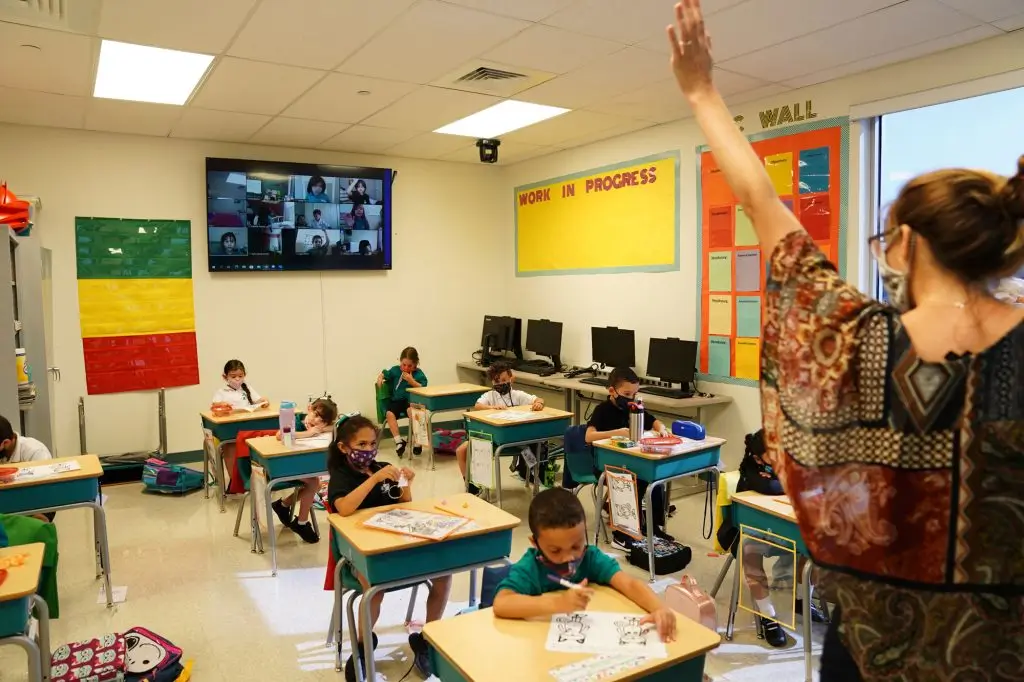Introduction to Colegia
Definition and Origin
The Latin word collegium, which becomes Colegio, refers to associations formed by people who share a common purpose, whether in educational environments or professional fields. In ancient Rome, colegios operated as professional guilds that consortium artisans and traders alongside other skilled men and women. The original concept developed over the years and now exists as colleges within multiple cultural and industrial settings.
Modern Interpretations
Educational institutions, professional organizations, and collaborative networks make up the majority of collegiate forms in modern times. These forums provide opportunities to distribute knowledge alongside training programs and collaborative teamwork on issues. The core attribute of collegiate results from its collaborative approach, which enhances growth and innovation among members.
Historical Background of Colegia
Ancient Roman Colegia
The historical background of colegia is rooted in the Roman origins of guilds or professional associations formed for multiple occupational circles. The original collegiate functioned by actively regulating commercial activities, establishing professional standards, and aiding its members. Social groups supported by collegial groups served multiple roles in political life by assuming the position of unified advocacy groups.
Medieval and Renaissance College
During the medieval era, followed by the Renaissance period, colegia kept advancing in their framework. European colleges developed a strong connection with both university campuses and academic communities. The universities contained colegia, which established residential educational facilities where students and teachers resided together for study purposes. The institutions created platforms for educational practices by prioritizing communal studies and intellectual dialogue, ultimately shaping contemporary academic systems.
Colegia in the Modern Era
In the present age, colleges have developed beyond their initial functions to create multiple kinds of organizations and networks. Today, colleges exist in diverse formats, including professional and academic organizations and collaborative forums in various industries. The core principles of collegiality—collaboration, mutual support, and collective advancement—remain central to their mission.
Types of Colegia
Educational Colegia
Colegio educational institutions are the most recognizable types of membership organizations. These collegiate organizations consist of universities, colleges, and other higher learning institutions. Higher learning institutions organize their collegiate operations as residential colleges, academic departments, or specialized research centres. Educational colleges support their members by offering essential academic team-up programs, mentorship services, and educational advancement through development activities.
Residential Colleges
Many colleges for residential use exist within universities across Britain and America. Students at these colleges see educational advancement through a holistic experience by taking part in community-based academic development mixed with social connections. Members of residential colleges experience a strong sense of community because they enjoy distinct traditions, their own governance systems, and support resources, which create tight bonds between people in these groups.
Academic Departments and Research Centers
Academic departments and research centres within universities operate as colegia. Faculty members are grouped alongside researchers and students based on shared interests, so they cooperate on joint research outputs and academic programs. Under the collegiate framework, research institutions progress scientific understanding and pioneer discoveries in their approved fields.
Professional Colegia
Professional colleges are made up of members who belong to a particular industry or profession. They offer members access to networking tools and educational resources that enhance professional competence. To maintain their members’ competence and ethical integrity, professional colleges implement standards of practice alongside codes of ethics and membership certifications.
Trade Associations
Trade associations function as professional colleges by serving businesses in specific industries. The organization helps its members access essential resources, defends their interests through advocacy, and offers options for teaming up. Trade associations contribute significantly to industry standard development by influencing public policy and best practices and shaping industry standards.
Certification Bodies
Certification bodies act as professional collegial, focusing on professional standards throughout their development and maintenance. The organization creates certification programs to examine candidates until they fulfil the standards needed to earn credentials. Through their activities, certification bodies confirm that professionals maintain the required competencies needed for proper role execution.
Collaborative Networks
Through technology, modern collaborative networks have developed into a contemporary version of colegia, creating virtual connections between organizations and people worldwide. The networks allow member organizations to improve their collective achievement of common goals through knowledge exchanges, shared resource access, and joint project work.
Online Communities
The online community stands as an outstanding illustration of collaborative networking. Virtual meeting spaces built on digital platforms connect people who share compatible expertise or common objectives, whether through forums, social media groups, or virtual conferences. Online communities create areas where members exchange ideas while working together to gain mutual assistance, which builds both a unified identity and shared organizational targets.
Innovation Hubs
Focusing on innovation and creativity is a main function of collaborative networks known as innovation hubs. Such centres unite business founders with scientific researchers and industry intelligence experts to work on advancements in cutting-edge projects that resolve complex issues. Halifax helps its members access resources, mentorship, and funding to transform ideas into realities.
The Role of Colegia in Society
Promoting Collaboration and Innovation
The primary purpose of college is to establish collaborative work and innovation opportunities. The combination of different expert viewpoints enabled colegia to become a space where creative ideas grow naturally. Members collaborating in collegiality create breakthroughs that enhance research accomplishments while promoting technological advances across industries to achieve societal development.
Supporting Professional Development
Collegiate members receive essential professional growth assistance from these organizations through their services. The collegiate organization organizes workshops, seminars, and medication programs that help members develop their knowledge, share abilities, and promote their professional advancement. Committing to continuous learning and professional growth ensures employed individuals maintain their field competence and effectiveness.
Advocating for Members’ Interests
The collegiate establishes itself as an advocate representing member interests by working on public policy matters and industry-standard initiatives. The organization represents its members’ collective interests, which allows colleges to influence decision-making processes while promoting regulations and policies that benefit its members. The advocacy function plays a crucial role in industrial settings when one voice does not adequately represent the members’ concerns.
Fostering a Sense of Community
The basic college philosophy supports the development of communities through their organizational structure. The collegiate structure helps members develop a communal feeling of affiliation, which they find both at academic institutions, professional associations, and collaborative frameworks. Building a communal aspect within collegiate institutions serves vital roles since it boosts individual and occupational health through relationship development and mutual assistance systems that generate shared purpose. This sense of community also provides emotional support, enhances well-being, and fosters a sense of belonging among members.
Challenges Facing by Colegia
Adapting to Technological Changes
Current college students encounter significant difficulties because they need to adapt to fast-paced technological advancements. Integrating digital tools and platforms in collaboration and communication processes demands that colleges accept new technologies to stay relevant and productive. Members need continuous digital infrastructure funding and training on the latest technology platforms to use them effectively. However, this adaptation also presents opportunities for enhanced collaboration, improved communication, and increased productivity, which can lead to significant benefits for college in the future.
Ensuring Inclusivity and Diversity
Colegia are challenged to maintain active inclusiveness toward their entire community membership base. Reflection of inclusivity should be a primary objective for collegiate organizations since they depend on cooperative work using diverse talent. The workplace must promote acceptance and value for every individual background. To achieve their mission, collegials must remove obstacles their members face, re-fair resource distribution, and build an environment that embraces inclusion and respect.
Keeping Up with Modern Developments in the Challenging World
The challenge of retaining significance emerges as the key issue that colleges need to address in a constantly changing environment. Colegio needs to transform its focus and educational programs, along with its offerings, to respond to evolving industry requirements for its members. The organization needs to develop new business areas while updating its standards and keeping a watchful eye on emerging market trends and industry challenges.
Balancing Autonomy and Regulation
Colegia has dual responsibilities of sustaining its independence while executing regulatory requirements. Since Colegia operates as self-managing entities, they must follow all applicable external rules and criteria. The sustainable operation of Colegia depends on achieving proper independence along with all necessary regulatory requirements.
The Future of Colegia
Embracing Digital Transformation
Digital transformation represents the future pathway that the colegia should pursue. Given the technological changes affecting work methods, colleges need to utilize emerging digital tools and platforms to optimize operational procedures and grow their organizational capacity and reach. Now is the ideal time for collegials to use online meeting technology, remote learning platforms, and digital collaboration tools, enabling better discussion and information exchange.
Expanding Global Networks
The modern interconnected world presents colegia with chances to build international connections through their networks. The formation of international partnerships allows colleges to benefit from multiple sources of knowledge derived from different cultural viewpoints. Members benefiting from global perspectives are a key result of this worldwide collegial approach, which yields expanded impact for their community projects.
Conclusion
All types of colleges throughout history contributed to forming societies and developing industry sectors and educational institutions. The concept of collegialism has continued through time, from Roman guilds to present professional associations and collaborative networks, while always representing collaboration alongside mutual support and unified progression. The future success of colegia depends on its ability to adapt through digital innovation while creating worldwide associations and maintaining sustainable practices along with social responsibility.
Professional organizations and their continued evolution can stay significant while promoting innovation through development and community-building support. Colegio will forever touch future generations through its unifying power to reach outstanding accomplishments among people with shared goals.
Visit Student Portal for more info!






